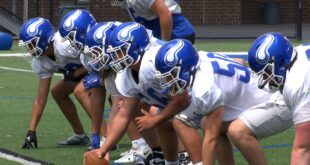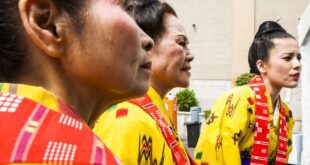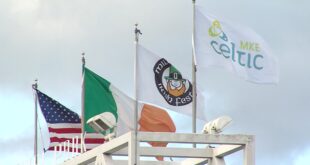This article is part of United Voices, an AFAR immersion program that brings together local content creators and AFAR editors to collaborate on workshops, report stories, and explore a destination. Our debut destination is Puerto Rico.
Puerto Rico is not only known for its incredible summer weather and surfable waves, but also for its local surfing community. At the heart of this community are the surfboard craftsmen, who have dedicated their lives to studying the island’s waves and using their experience to handcraft beautiful surfboards. These surfboards are not only works of art personalized for each customer, but also symbols of identity for local surfers.
There is a sense of pride among local surfers to ride a surfboard made in Puerto Rico, especially in an industry dominated by international brands. This sense of pride was ignited within me when I received my first custom hand-shaped surfboard from Machete Shapes in 2023. Intrigued, I decided to visit and document the works of local shapers Mika Ramírez, Néstor Ramírez, and Migue Flores.
Machete Shapes’ workshop in Isabela, a town in the north of the island, feels like a hidden treasure. Upon arrival, the sound of shaping machines and the voice of a podcast interview filled the air. Inside, Mika, a third-generation shaper, was hard at work. He showed me around his workshop, which was divided into three rooms dedicated to different parts of the shaping process. Mika then took me to meet his grandfather, Néstor Ramírez, the founder of Pelícano Surfboards. Néstor’s knowledge and experience with shaping were evident, having shaped boards for over 40 years.
Mika explained how his curiosity for shaping was sparked early on but was shattered once he realized the demanding nature of the process. After Hurricane Maria, he felt a strong pull to return to Puerto Rico from the States and continue his family’s legacy under the name Machete Shapes. One of Mika’s loyal clients, Ileana Hernandez, described Mika’s boards as weapons that cut through waves, made for high-performance surfers who want to dominate the island.
Néstor Ramírez shared how the support from major surf shops had decreased over the years. In the past, the demand for Pelícano boards was higher as there were fewer local shapers and less influence from international brands. However, with the evolution of shaping technology and mass-production materials, selling custom boards became more challenging for local shapers. Despite this, the trust and loyalty from their clients and local community remained strong.
Migue Flores, another talented shaper on the island, began shaping out of necessity and quickly became sought after. He credits his mentors and the collaboration among local shapers for his growth and success. These gatherings allow shapers to exchange ideas and provide constructive critiques, resulting in diverse board designs that cater to different surfing experiences.
Collaboration is a key element in Migue’s work, allowing him to create boards that balance both performance and style. From smaller, high-performance boards to mid-length boards that offer stability and flow, and even longboards that provide a slower and more tranquil surfing experience, Migue emphasizes the importance of understanding the contrasts between different surf styles.
Migue Flores and Mika Ramírez are now part of a community of well-respected shapers in Puerto Rico, continuing the legacy of handcrafted surfboards that represent not only a connection between the shaper and the surfer but also a symbol of local pride.
 Mind Uncharted Explore. Discover. Learn.
Mind Uncharted Explore. Discover. Learn.


